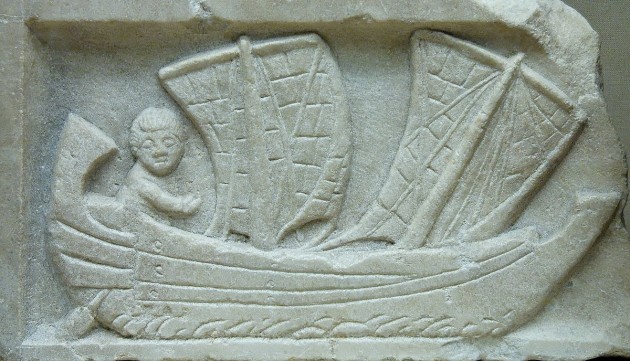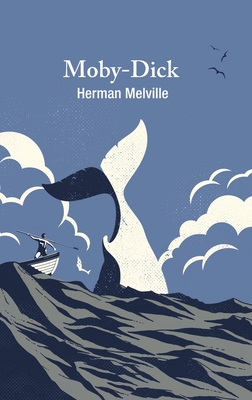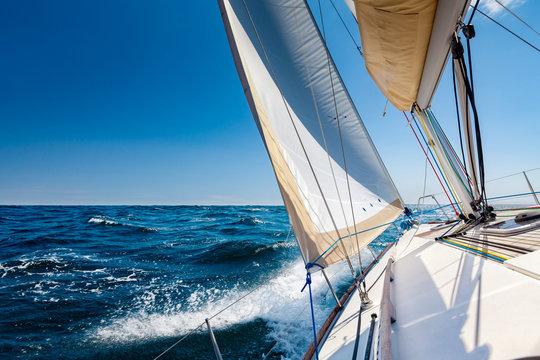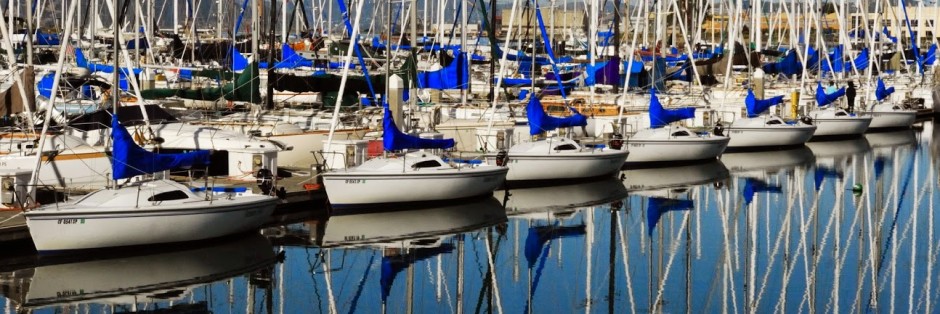I have great affection and respect for the hard-won traditional arts of the sailor. Every modern sailor must still, to this day, master them just like the mariners of yesteryear. This ancient body of knowledge, plus some other aspects of sailing described below, are some reasons for my feeling that our sport is superior to any other leisure time endeavor. You like feeling superior, right? Well, that’s silly. Or is it?

1. Sailing is the oldest of our recreations, with the exception of hunting and fishing. The history of our sport is not hundreds, nor thousands, but hundreds of thousands of years older than tennis, golf, biking, or skiing. The earliest undoubted evidence of human voyaging is the settling of Australia by the aboriginal discoverers. They could not have reached it without an ocean passage of twenty-five miles or more. Further back, there is trustworthy evidence of human habitation on Crete 130,000 years ago, before Homo sapiens were in Europe, which implies those explorers were Neanderthals. Crete has been an island sixty miles from the mainland for millions of years. But the most radical possibility for early voyagers is the case of Homo floresiensis, also known as the “hobbit people,” who inhabited the island of Flores in Indonesia a million years ago. As to the common theory that any of these folks were accidentally blown by storms to these destinations, this ignores the fact that in order to gain a sustained foothold, which is what they did, you need quite a number of fellow pioneers to start, including, obviously, females. It required repeated, planned trips in some kind of boat. Despite all the fluctuations in weather, sea level, and human interaction since those early times, the ocean waters you sail on now are the same as those faced by these early voyagers.
Besides boats, another ancient technology is cordage. On my first day at Tradewinds as a beginner, I was struck by the fact that in the twentieth century, ropes were being used to control the boat. Ropes? We have servos and actuators and hydraulics. What is with this primitive gear? Like the first boats, ancient cordage, made of organic things like vines or sinew, doesn’t survive through the ages so we lack archaeological proof. The earliest hominid technology we have evidence of, over three million years ago, is stone tools. Knapping stone tools is not easy, and takes skill and foresight. It is much less difficult to strip leaves off a vine, creating a rope. Again, nameless people, who weren’t yet human, thought up a simple contrivance to help with their lives that we still use today. The connection to these earliest technological innovators is part of the heritage I became aware of through sailing.
2. Sailing has had an immeasurably larger impact on history and societal development than any other leisure time activity. The Age of Discovery and the voyages of the ancient Polynesians were conducted by sailors. The Americas and Australia had been settled long before the Europeans stumbled on them—under sail—but as mentioned, Australia, and probably much of the Americas, was accessed from sea by the aboriginal discoverers.
No tennis match ended an empire, nor saved a culture from a fall, but: 1) After the sea battle of Salamis stopped Persia, Athens enjoyed a brief surge of intellectual development that has never been surpassed. Had Persia won, the Greeks would not have begun the first democracy, and there may never have been a Socrates, Herodotus, Plato, or Sophocles. 2) The British Isles were saved twice by sea from would-be conquerors from Europe, after they had earlier been invaded by the Vikings, who were renowned sailors. Under Elizabeth I at the Spanish Armada, and again against Napolean’s fleet at Trafalgar in ships commanded by Horatio Nelson, the nation was protected by its sailors. 3) The astonishing planning, execution, and good fortune of American sea power has carried many a day including Normandy and the Battle of Midway.
None of these battles were the least guaranteed and a gambler would surely have bet against both Greece and America at those engagements. How different the world would be had the outcomes been other than they were.

3. Sailing has the best literature. Although there are great sportswriters in baseball, golf, fishing, and football, are Homer, Melville, and London among them? Homer wrote the first, and arguably still the greatest, seagoing epic at around 700 BC. Odysseus’ homeward voyage has been the subject of fascination, skepticism, and spin-offs for over two millennia. Melville’s Moby Dick is to this day still assigned in high schools. You may have read and hated it, as I did. I suggest you revisit it. It is a mountain of a book, based on a true story which was the subject of The Heart of The Sea, the great movie by director Ron Howard. The chapters on the biology of the whale, dismissed as filler by my high school teacher, are actually what a textbook description of a whale’s anatomy would be like if written by Shakespeare. London’s Sea Wolf and Cruise of the Snark may have you questioning why you ever left land.
4. Sailing is a weighty undertaking. No one is going to die because of a poor golf swing. Being a captain, however, means taking full responsibility for the safety and wellbeing of your crew and boat, as well as that of other mariners. I cannot think of another recreational activity with quite this level of gravitas. Becoming a captain is a powerful life choice to make.

5. Sailing widens horizons. If you spend hundreds of thousands on a new Lamborghini, you are still going to be driving the same roads as the plebeians. But if you spend a fraction of that on a boat, you can go anywhere, to places where there are no roads. You don’t need an agency, industry, or supervisor to give you permission. You can open all the doors yourself.
6. Sailing leads to adventure. Not all sailors have an attraction to this sort of thing, as an adventure is something with an outcome that is not a given. Even a day sail on the Bay offers that. With the Bay Area Summiteers, we’ve shown that great explorations can be undertaken even without going offshore. It’s good to work an untried goal into every day on the water.
7. Finally, the experience at sea will build self-confidence in all areas of life. As you build your skills in tennis, golf, and skiing, you’ll be more confident in your performance. But you will not meet the variety of issues that any skipper will face. Weather, boat gear, sail trim, crew management, and foreign regulations are a sample of the challenges that will challenge your perseverance and your ability to make sound decisions in the face of uncertainty. However, after musing on all of this, do me a favor. If you run into Serena Williams or Tiger Woods, don’t lord it over them. They aren’t to blame for the limitations of their sport. Humility is the mark of the true sailor, and as a teacher of this virtue, the sea is second to none.
